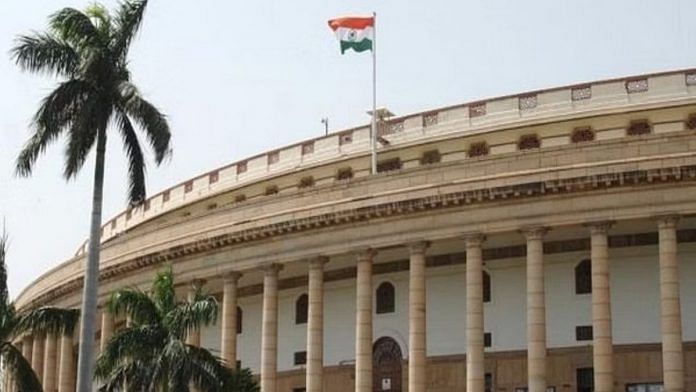The draft Digital Data Protection Bill is out for public comments. The Bill has left several aspects of the law to be prescribed by the government at a later date. That is, the law is silent on the details, and the Rules will eventually be framed by the relevant Ministry. Previous legislation such as the Companies Act, 2013 and the Aadhaar (Targeted Delivery of Financial and Other Subsidies, Benefits, and Services) Act, 2016 has also left substantial parts of the statute to be filled by the Rules later. This new trend should make us revisit the fundamental role of Parliament in law making.
Parliament and the Executive
The role of Parliament (our elected representatives) in drafting laws has been diminishing. Increasingly, the initial law is drafted by officials (the bureaucracy or the Executive), and it leaves large chunks unspecified. Subsequent rules are also drafted by officials, and while placed before Parliament, they do not undergo the scrutiny that the parent law does. In fact, to avoid going to Parliament, regulators often issue circulars, which are not even law, but somehow have come to have the force of law. The burden of making legislation has shifted from our elected representatives to unelected officials in the bureaucracy. We need to make a distinction between the “policy” that is agreed by Parliament and the “technical details” of the policy. Delegated legislation can change technical details of a policy, but when large parts of the legislation are left to be drafted later, this distinction gets blurred. This is what has been termed as the “rise of the administrative state.”
The cost-benefit of law-making by the Executive
There are three possible reasons for this shift in responsibility. First, officials are seen to have sector expertise relative to elected representatives, and in a complex economy, they are considered better placed to draft the law. Second, making amendments to the law can be time-consuming, and going back to Parliament each time may become counterproductive. Third, perhaps delegation has become an easy way to show action— passing a law without building consensus and kicking the can down the road.
While there may be merit in some of the reasons, leaving critical elements of the law in the hands of officials is costly. First, the Rule of Law requires a clear distinction between what constitutes “guidance” and what constitutes “law.” But when the two are used interchangeably, we run the risk of giving arbitrary power in the hands of officials. It results in what is often alluded to as a democratic deficit.
Second, this has led to continuous changes in the Rules, creating an environment of uncertainty on what the intention of the legislature is. If one has to read the Act, the Rules, the regulations, circulars and FAQs to know the law on one point, then it increases the cost of doing business. While one could argue that frequent change is a sign of a responsive government, it also suggests that not enough thought is given to the draft in the first place. In any case, frequent changes imply that businesses will find it difficult to take long-term bets and will remain unsure of the policy position of the legislature.
Finally, courts could potentially strike down laws for “excessive delegation,” thereby weakening the case for quick turnaround times.
This phenomenon of delegated legislation is raising concerns in other jurisdictions as well. In the UK, for example, the Delegated powers and Reform Committee clearly articulated the need to rebalance power between the Parliament and the Executive. The administrative state in the UK is relatively small compared to the one in India. It also does not have the near-complete lack of separation of powers that is prevalent in large parts of the Indian state, in practice if not in theory. Officials in India make laws, conduct inspections, and adjudicate on cases themselves, giving them unchecked powers that would be unheard of in a good liberal democracy. This makes the practice of delegation of law-making in India more perilous for the Rule of Law.
Also read:Telecom bill will choke one of India’s great success stories, take us back to licence raj
Rebuild core institution
Parliament has to step up to its role of the law-maker. One has to admit here that much is broken about the Indian Parliament as well. However, instead of pushing the burden on the Executive as a way around these problems, we need to focus on the task of rebuilding the core institution. The first step towards this would be to understand the causes of the falling productivity, and how it might be repaired. The causes may be many—including the anti-defection bill, or the nature of technical expertise available to Parliamentarians, or the challenges of building consensus.
Parliament needs to take back its core responsibility of drafting legislation. It also needs to provide for adequate space for healthy debate on its proposed statutes. No legislation is complete, and some elements of it will always have to be delegated to the Executive. But every such delegation needs to include the principle that the subordinate legislation should follow, and clearly confine its scope.
The author is an associate professor at the National Institute of Public Finance and Policy (NIPFP). She tweets @resanering. Views are personal.
(Edited by Ratan Priya)



